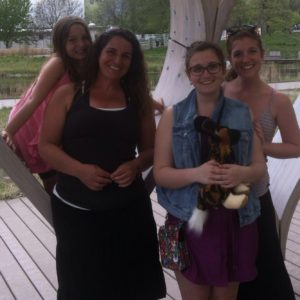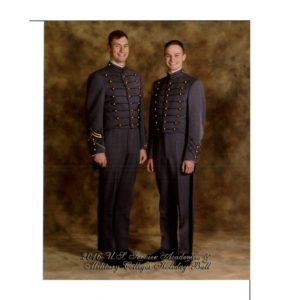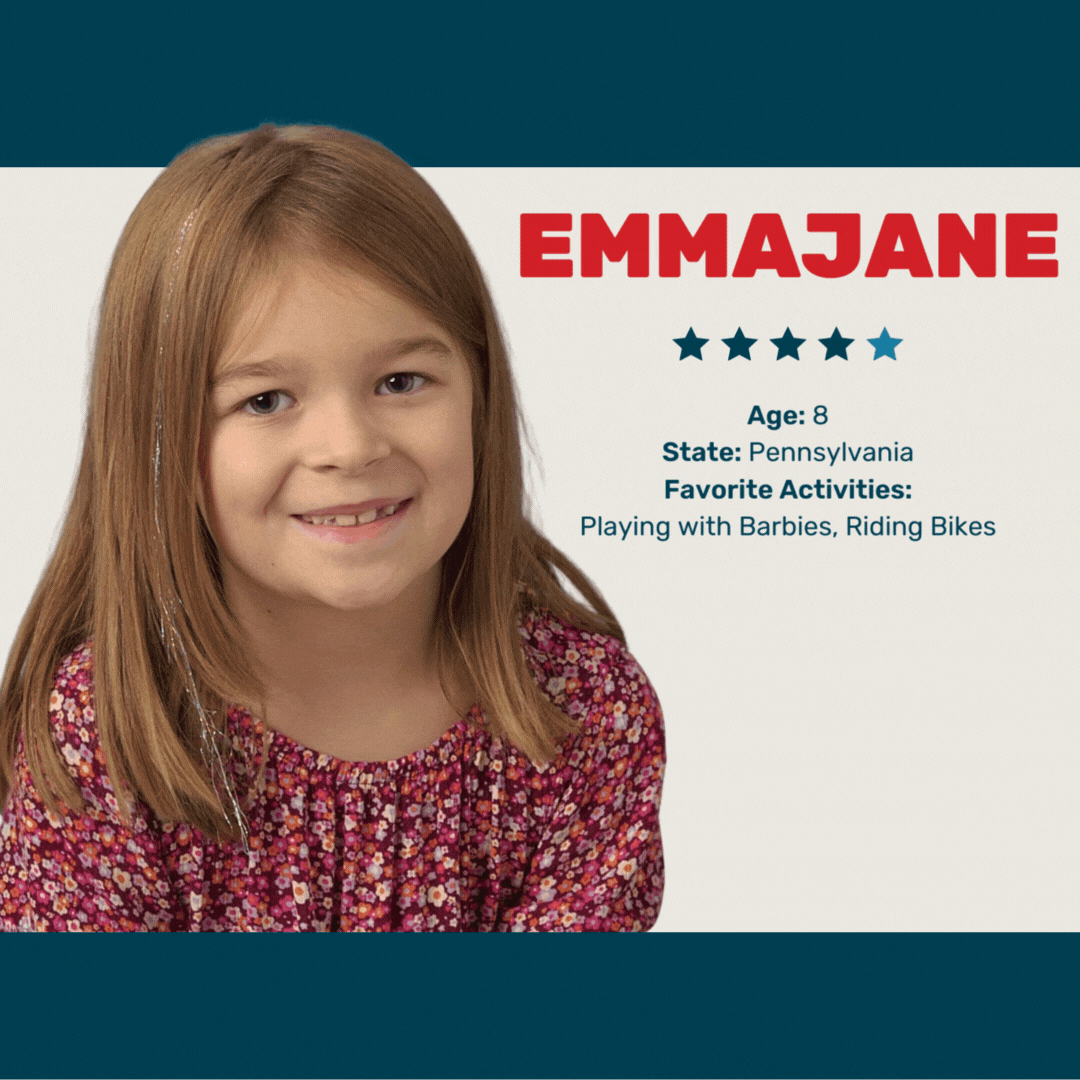
EmmaJane, 8, was selected as OMK's Courageous Kids Contest winner in the U.S. Air National Guard category! EmmaJane is the child of a U.S. Air National Guard service member who served on deployment in 2023.
"EmmaJane is not only resilient, but she is a rock for little brother, kids at school, and others in the community," said her father, a U.S. Air National Guardsman.
"She is one of the most thoughtful and caring people you'll ever meet with a heart of gold. She also has my spirit — she doesn't settle for less than her best, but doesn't put others down to get there. Instead, she will make sure that others succeed along with her.
While my deployment was difficult and sad for her, she remained strong. She made it a point to keep track of where I was and how long until I got home. Before Christmas she helped organize a project at her school where the students collected and brought in fake plants to send to me and our troops since we were in the desert and never got to see green. They sent these along with cards for me to hand out all around the base.
Her class was also able to have me do a live stream into their classroom where EmmaJane wiped away tears and shared with the class what it is like to be a military child. Even the teachers at the school have commented on how strong she is! Every time she got down about me being away, she instead thought about something fun we could do when I returned.
EmmaJane was selected for Student of the Month at her elementary school twice when I was deployed — first for the character trait of "Gratitude" and second for the trait of "Honesty." She also makes sure every kid at school has a friend, and if they don't she "adopts" them into her circle of friends.
Just as important, she has been there for her little brother Simon (5). She takes her role of big sister seriously and did everything she could to cheer him up when he was down about the deployment."
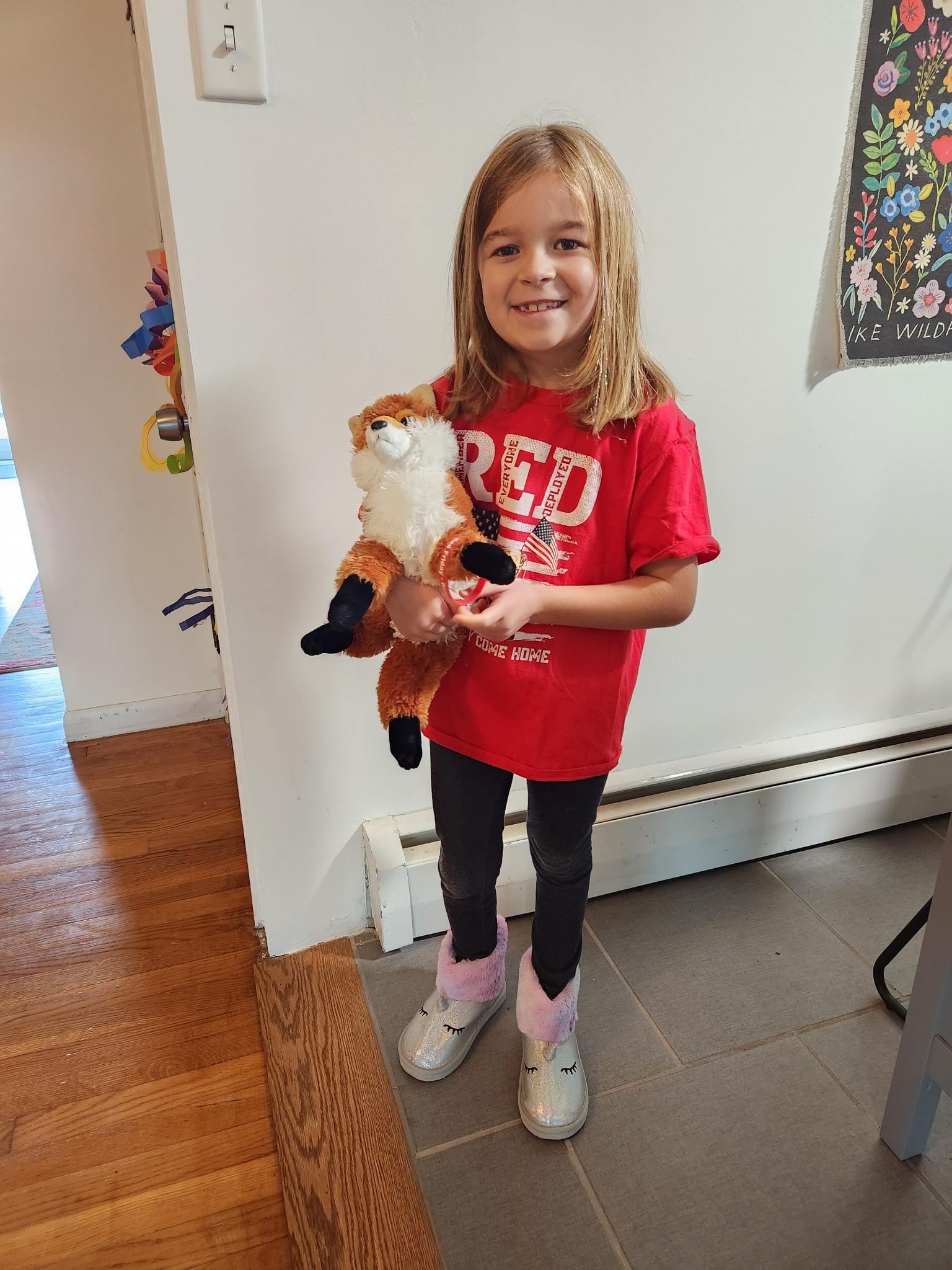
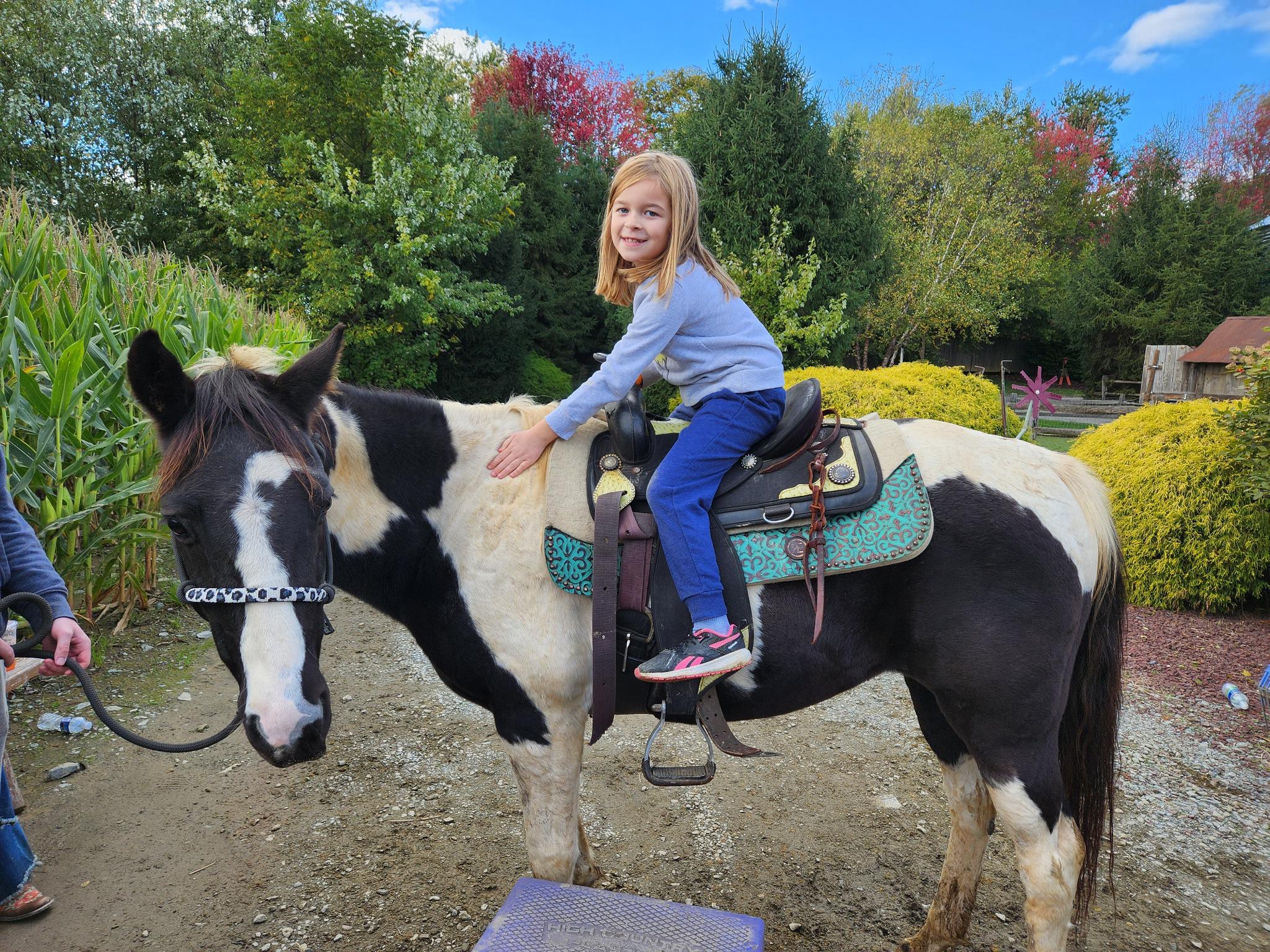
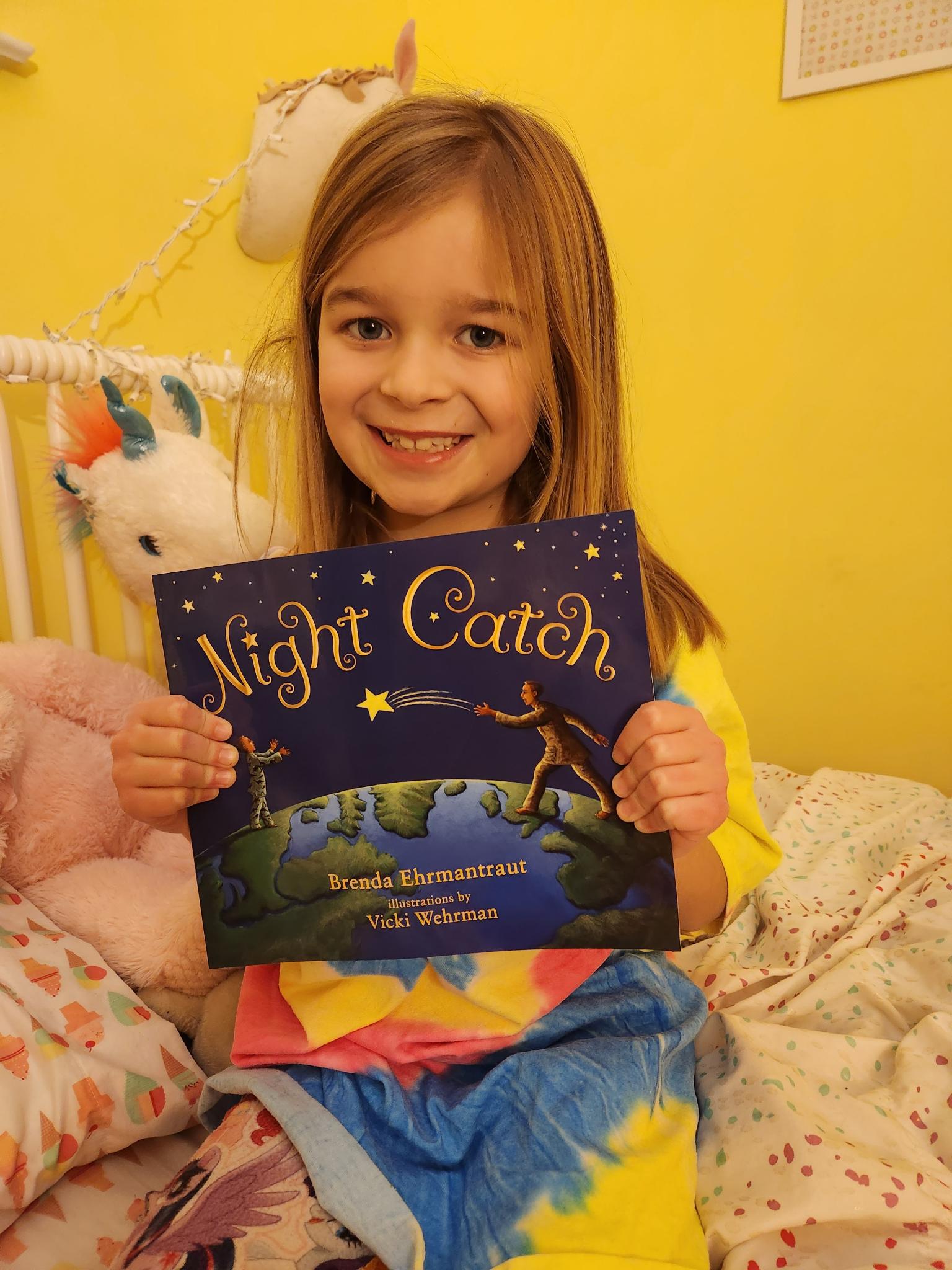
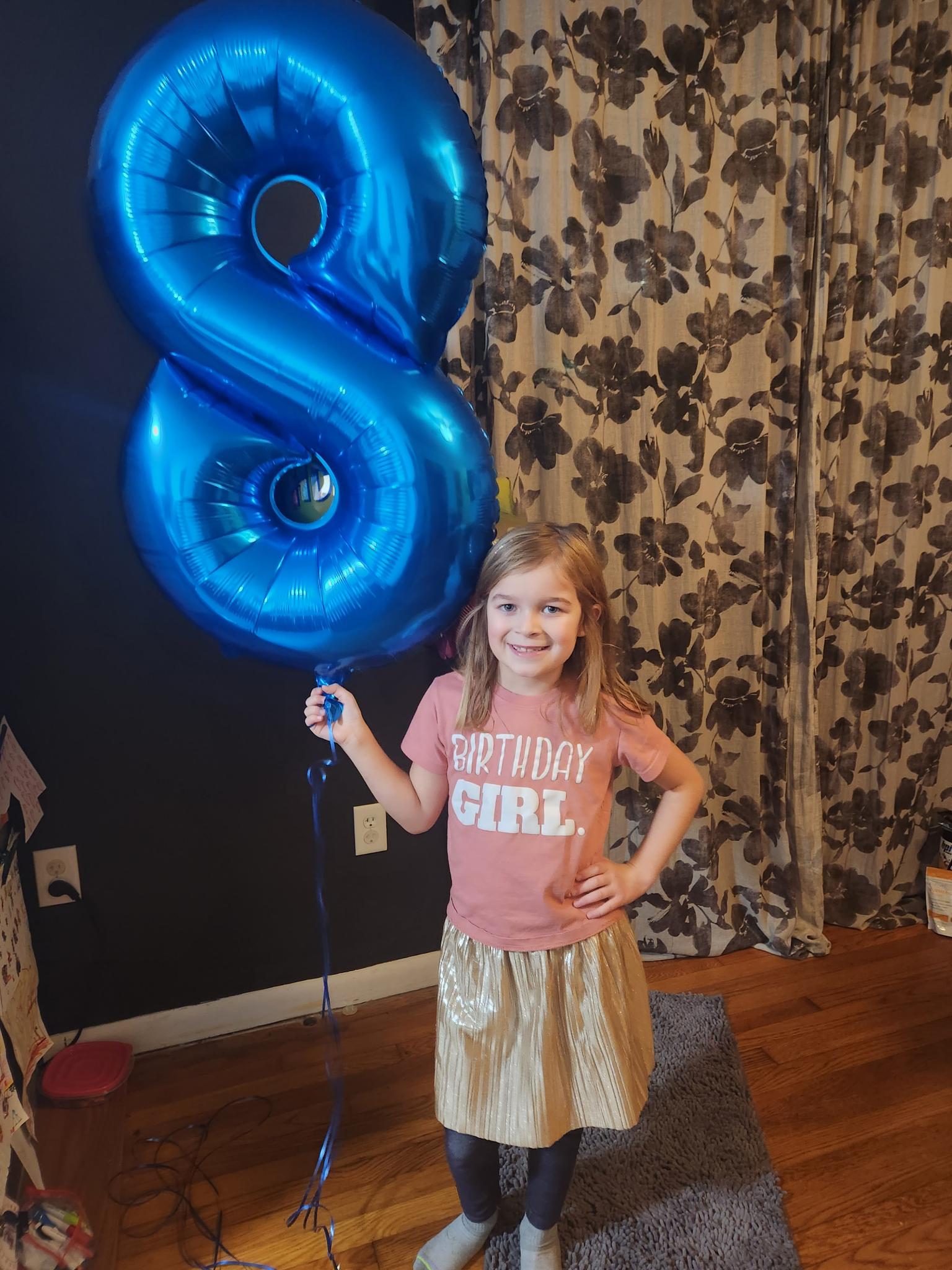
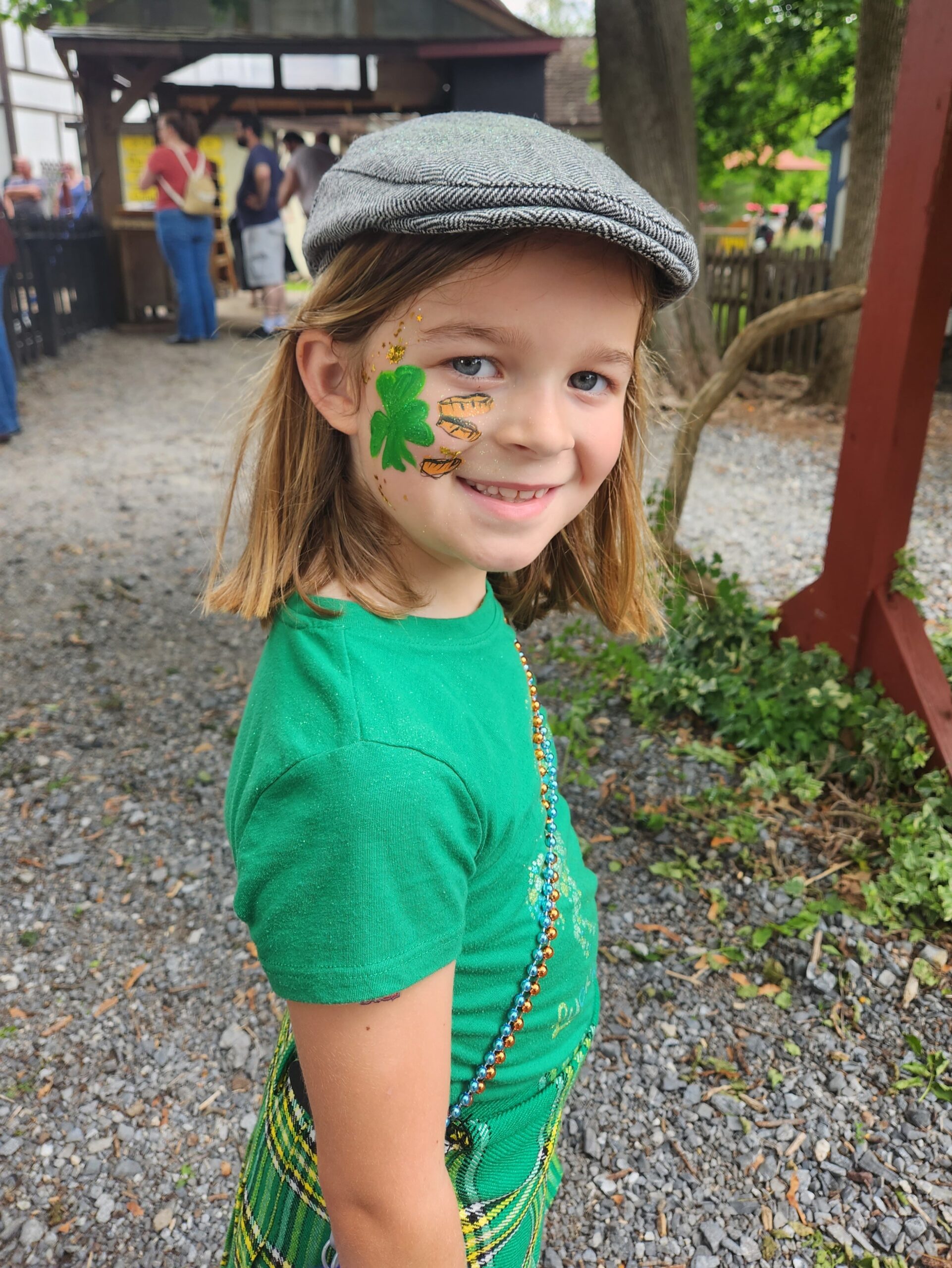
"When she was just four years old, EmmaJane began to ask questions about why some people don't have a home. She then asked if we could help them out and give them a home. We decided to make this a teachable moment and a lifelong project dedicated to serving others and sharing the blessings God has given to us. So we made a pact that we would raise money and when we had enough we would build a tiny house to be given away to someone in need.
EmmaJane's Tiny House Project was born. The project started with simple fundraisers like a lemonade stand, yard sale, and other similar things. As she grows so does the project and her imagination for new ways to raise money. This past year she developed, printed, and sold greeting cards that she designed with all proceeds going towards the project. Our hope is to be able to fully fund and build a home by the time she graduates high school."
Q&A with EmmaJane
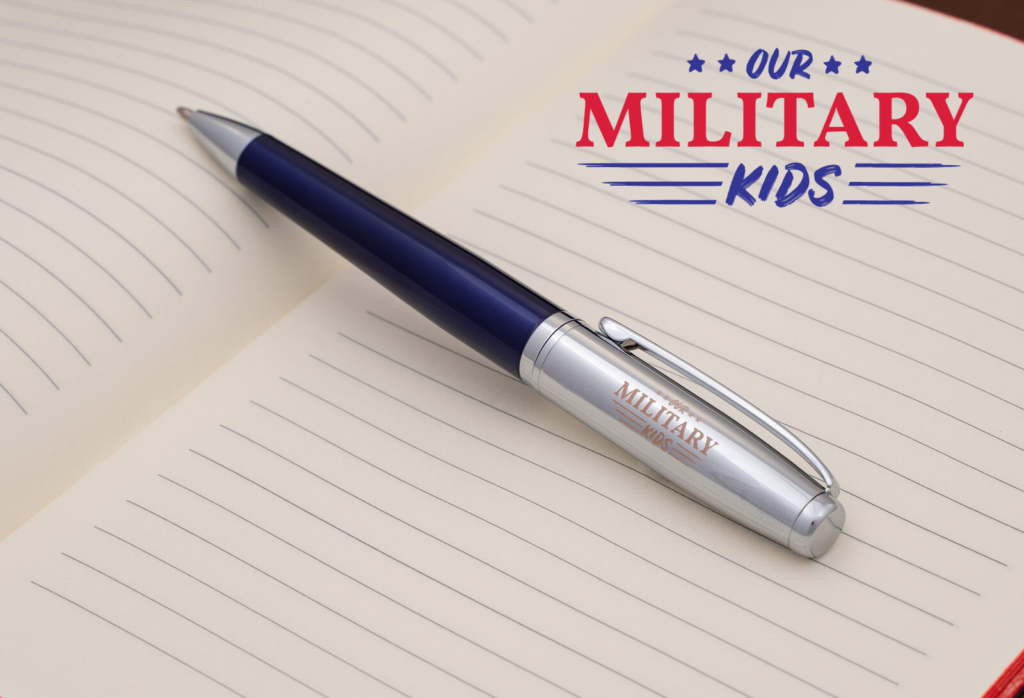
Our Military Kids is excited to partner with Dayspring Pens, receiving a donation of custom engraved pens. Next door to the Oceana Air Base runway in Virginia Beach, Virginia, Dayspring Pens is located in the heart of a military community. They specialize in crafting luxury pens and the custom engraving that makes them one of a kind.
The team at Dayspring Pens is proud to give to Our Military Kids, an organization that works so diligently to help the children of those serving in the National Guard and Reserve and recovering from combat-related injuries. Our Military Kids supports the children waiting through the long deployments and hard transitions that come in a time of crisis by providing extracurricular activity scholarships that help children reduce stress, connect with peers and mentors, and build self-confidence.
Dayspring Pens hopes that this donation of pens can help Our Military Kids as they encourage the families of this vital military community and help each National Guard and Reserve child discover new passions.
Calling all creative military kids!!
Our Military Kids is having a patriotic holiday drawing contest!
Top selections will appear on OMK’s end-of-year greeting cards going on sale soon. Winners will receive gift cards and a special mention on our social media.
Here are the rules:
- Due Date: SEPT. 4 (Weeks away!)
- Theme: Patriotic Holiday or Generic Holiday
- Participants: Military Kids under age 14
- Requirements: 8.5 x 11 dimension, colored pencil, marker or crayon
- Other information: Write child’s name, age, parents’ military branch, and your email address on the back of the art
- Mail to: OMK, 6861 Elm St., Suite 2A, McLean, VA 22101 (Call 703-734-6654 for more info.)
 CSRA, Inc., an IT and technology services company, and Our Military Kids linked arms July 15 for a few hours of G-rated family fun at Frying Pan Park in Herndon, Virginia.
CSRA, Inc., an IT and technology services company, and Our Military Kids linked arms July 15 for a few hours of G-rated family fun at Frying Pan Park in Herndon, Virginia.
“This was a great example of super-positive employee engagement,” said Linda Davidson, OMK’s executive director. “We brought goodies that had been donated to military kids, we invited some area military families who had received grants, and CSRA provided the manpower. Not only that, some friendly Mission Barbecue servers brought very tasty food.”
Even the weather cooperated to make for a fun and relaxing time for kids and adults. There was face painting, limbo, an obstacle course, crafts, and  free books for military kids from Barnes and Noble customers.
free books for military kids from Barnes and Noble customers.
“These are the kinds of partnerships we hope will last for years to come,” said Davidson.

By Judy McSpadden
This week in Oshkosh, Wisconsin, is EAA’s AirVenture, the biggest annual gathering of aviation enthusiasts in the country. With 550,000 people in attendance, 10,000-plus aircraft, and visitors from 80 nations, it is the place to be if you like airplanes.
Our Military Kids grant recipient, and super-charged aviation enthusiast, Naomi Ceballos-Lopez knows all about AirVenture, especially since she just recently completed her second Air Academy Camp experience at Oshkosh.

Naomi Ceballos-Lopez rides alongside a local pilot during a flight at aviation camp. “I loved everything about it!”
“At camp, I figured out that I’m extremely interested in aviation,” said Naomi, a 15-year-old high school sophomore, who received the OMK camp grant when her father deployed overseas with the Army Reserves. “A job in aviation is anything but ordinary. You can fly, be an engineer, or be a mechanic. I would like to be a commercial pilot, a drone pilot, or an air traffic controller.”
Naomi found out about the Oshkosh camp from one of her teachers at school. “She was telling me about a program called Young Eagles, where pilots give kids flights,” she said. “I tried one of those flights and absolutely loved everything about it.
“At first, I was kind of scared, but it was a great feeling. I saw the world in a different perspective. It’s not like driving a car. You have to control the stick, up and down. There are a lot of buttons to press.”
Ironically, Naomi has a driver’s permit, but she won’t get her license until December.
From the Young Eagles program, Naomi learned about the Air Academy in Oshkosh. About 40 kids from all over the country attended the week-long summer camp. Naomi has gone two years in a row.
Campers participate in the traditional camp experience with dormitories, games, and team-building activities like rock climbing. They also work with wood, sheet metal and other materials to make an airplane wing and to learn about planes throughout history.
Of course, the campers also fly. Naomi said, “We went up in a helicopter and a Skycatcher airplane. It was small, seating two people, and I got to fly all around Oshkosh.”
 When school starts, Naomi will return to her other interests. She plays sports, like golf and track, and she’s a cheerleader. One of the clubs she likes is El Sol, an organization that helps Hispanics in the community.
When school starts, Naomi will return to her other interests. She plays sports, like golf and track, and she’s a cheerleader. One of the clubs she likes is El Sol, an organization that helps Hispanics in the community.
Beyond high school, she is considering going to college at Embry Riddle, an aviation school. It’s not surprising that, as a military kid, she’s also thinking about joining the U.S. Air Force.
“My dad’s military benefits have given me a lot of opportunity, like the OMK grant for camp. I’m also able to use the facilities at Ft. McCoy nearby. My family tries to swim at the pool once a month,” she said.
As the week winds down, visitors at Oshkosh – including OMK’s own, Executive Director Linda Davidson – will be returning to their routines. But there’s one military kid who will continue looking skyward, planning for a bright future.
(Please email comments to JSMcSpadden@ourmilitarykids.org.)
When she returned from a deployment to Afghanistan, Sergeant Tishara Gilliam, suffering from Post Traumatic Stress Disorder, knew she was a very different from the person who had left 12 months before. What she didn’t expect was the difference that had taken place in her baby girl, London.
“When I got off that plane, London wasn’t just walking, she took off running,” said Gilliam, a recently retired Army logistician who had deployed after leaving London, at 7-months-old, with her parents.
According to Gilliam, London has been running ever since that day. “She’s always running – even in flip flops. She has always liked to play tag because no one can catch her.”
Consequently, Gilliam told London, “I’m just gonna have you run for real,” and she used a grant from Our Military Kids to enroll London, at age 7, in the Sonic Boom Running Club at Ft. Belvoir, Virginia. The track club, established in 1999, is made up of athletes, ages 5-18, who compete locally and nationally.
 With less than a year of competitive running under her pint-sized belt, London has now set her team’s mile-run record, and is going to compete in national junior olympic games in Detroit at the end of this month.
With less than a year of competitive running under her pint-sized belt, London has now set her team’s mile-run record, and is going to compete in national junior olympic games in Detroit at the end of this month.
The games are sponsored by the Amateur Athletic Union, founded in 1888 to establish standards in amateur sports. The first AAU Junior Olympic Games opened in 1967, in Washington DC, with 523 athletes. Since then, the games have become the largest national multi-sport event for youth in the country. They have occurred in 19 states and 30 cities.
At age 7, London runs the mile in 7 minutes, 22 seconds – not bad, considering, according to Livestrong.com, the average 12-year-old girl, in the top half of her peers, runs the mile in about 11 minutes.
As a single parent experiencing emotional ups and downs linked to wartime trauma, Gilliam said she has tried to teach London that bad things can happen, but that they can make a person stronger than before.
“London knows I have PTSD,” said Gilliam. “In fact, she’s protective of me sometimes. She was born on Thanksgiving.”
Gilliam, has two other children, Anaiah, 10, and K’Marian, 4, who also received Our Military Kids grants. The family will grow again in August, when Gilliam marries a man she has known 11 years.
“He’s been my rock,” she said.
Gilliam’s whole family recently attended an OMK family day at the park. She said she would pass along to OMK the results of the run. In August, our readers can check this site to find out. Meanwhile – Good luck, London!
(Please email your comments to JSMcSpadden@ourmilitarykids.org.)
What does a soldier do when he finally retires, ready to decompress from a life of service, strain and sweat, but he finds he can’t sleep at night? What does he do when his darkest battle moments keep playing across his closed eyes? When he seeks solace from drink, he gets worse. He can’t remember the good times of his life – only the military routines: work, PT, work, eat dinner, go to sleep, up again at dawn, work…
When in 2016, Marine Gunnery Sgt. Julian Mejorado took an early retirement option after 17 years’ military service, he didn’t know he had a problem. He just knew he was ready to exhale; his career had been intense. Early on, he had served as a recruiter and was never home. Later, as an administrative specialist, he joined an Infantry battalion. In Iraq, in 2006, he would go out on the range with the infantry troops, then play catch-up on administrative duties at night.
He said, “I was always goal oriented, striving for rank. Then, when I made gunnery sergeant, I went into autopilot for 10 years. My wife took care of the kids and the house; I worked. When I did come home, the kids were asleep. I wasn’t seeing them grow up.”
His wife of 15 years knew he had a problem. He said, “She would say to me, ‘It’s time for you to get out. You’re not the man I married. It’s time to retire and work on you now.’”
When Mejorado did retire, the transition did not bring him the peace he expected. There was more time for thinking about the war; there was more time to drink. When he attempted suicide in 2016, he got the help needed for him to turn the corner.
“I woke up in the hospital,” he said, “and the VA came to my aide.”
He said, “I was in a really dark place. I had been diagnosed with a 50 percent disability involving depression. My counselors said memory loss is part of PTSD and depression.”
Mejorado was assigned a case manager whom he believes saved his life. He said, “She threw great programs at me: AA, Semper Fi…and Our Military Kids.”
Thanks to the Our Military Kids grants, Mejorado’s two children — Savannah, age 7, and Xavier, age 9 — are taking swimming and karate at the local YMCA in Oceanside, California. Since Mejorado had contracted a sun sensitivity in Iraq, and he needed to sit in the shade, this YMCA, which had awnings near the swimming pool, was an appealing choice.
“The kids love to swim, and that gives me a positive outlook too,” he said. “Knowing my kids are learning something they can use when they’re older is great. And their smiles really give me a smile.”
As to the future, Mejorado said, “I’ve been getting better.”
His wife, a substitute teacher, is hopeful she can find a full-time teaching job. The couple is hoping to buy a home.
Mejorado said, “My number 1 concern is my health and kids’ future.”
By Judy McSpadden
Let’s play “Guess this Sport.”
- This sport was started by men in the late 1800s.
- It involves teamwork.
- It requires running, muscle strength, and flexibility.
- It requires an intense time commitment for training and competition.
- It is recognized as a sport by the International Olympic Committee.
- It has the highest rate of catastrophic injury for females, according to the Journal of Pediatrics.
Until you read No. 5, you probably thought the answer was football, but football hasn’t yet been recognized by the IOC as a sport. Boxing is an Olympic sport with a high rate of injuries, but it doesn’t involve teamwork.
Are you ready for the answer? Cheerleading. That’s right, an activity that many don’t even acknowledge as a sport has continued to evolve since young men in the early 1900s joined yell squads to cheer on their college sports teams.
Women, who started cheerleading in the 1920s, began to dominate the sport during World War II, when men went off to fight. Today, according to Sport.com, there are 3.4 million registered cheerleaders in the United States. Of those, a recent survey by the National Federation of State High School Associations reports that 400,000 people are cheerleading in American high school programs.
Over the last year, Our Military Kids has awarded over 128 grants for cheerleading, a combination of gymnastics (for which OMK gave 478 grants) and dance (for which OMK gave 381 grants).
Two OMK cheerleading grant recipients, Zoey and Raegan Lawson, just recently competed at the 2017 Summit, a varsity all-star cheerleading and dance championship in Orlando, Florida.
Eleven-year-old Raegan’s team placed tenth out of 80 at Disney. That’s not bad, considering her team ran against 780 teams to get to Disney in the first place.
Zoey, age 12, competed with a dance team. Her team placed twelfth in hip hop and fifth in POM dancing.
Raegan and Zoey received OMK grants after their dad, Army Staff Sgt. Doug Lawson, was injured in a roadside explosion in Iraq in 2008. Joining the Army immediately after high school, Doug had served more than 15 years when he was medically retired. His wife, Jessica Lawson, said the OMK grants were invaluable to helping the girls continue to do what they loved.
Doug still deals with complications from a TBI, but, according to Jessica, cheerleading has opened doors to supportive friendships with other families.
“Gym friends are my best friends,” said Jessica. “We travel together; we spend holidays together. The guys hang out outside of cheer.”
Jessica said Doug’s good sense of humor has helped him deal with his challenges and enjoy life with his three daughters (Their eldest is 18.). “He knows that when you have daughters, at times you’re going to go to work with glitter on your face,” she said. “He once made a bet with the girls and lost, so he had to wear a tutu to a competition.”
Jessica said the difficult part of the cheer sport is the expense. With Doug unable to work, and Jessica working as a nurse, “a big part of what we go through has been financial. Without grants like OMK’s, our girls would not be able to participate,” she said.
Jessica said the key to keeping life as stable as possible is to just appreciate every day and to make sure the girls have activities.
 Aahh, summer camp…swinging from a vine, hiking through pine-scented woods, singing around a crackling campfire. It’s no wonder that each year, more than 11 million American kids and adults attend summer camps, according to the American Camp Association.
Aahh, summer camp…swinging from a vine, hiking through pine-scented woods, singing around a crackling campfire. It’s no wonder that each year, more than 11 million American kids and adults attend summer camps, according to the American Camp Association.
Since last May, Our Military Kids has awarded more than 450 camp grants to children of deployed National Guard and Reserve service members or children of wounded warriors. These camps range from 4-H and YMCA “sleep away” camps to day camps focused on sports, music or STEM.
“It seems like there are camps for everybody,” said Michelle Tran, OMK’s Family Programs Coordinator. “Lots of our military kids attend traditional camps with outdoor adventures. There’s also Operation Purple Camps, the camps specifically for military kids, sponsored by the National Military and Family Association. But sometimes military kids are interested in specific camps like art camp or surf camp.”
Hannah Peters is a military kid who will attend a unique kind of camp this year. At age 17, this will be the first camp of her life. She was never able to go before.
Hannah has Hydrocephalus (CSF), a condition where too much spinal fluid collects on the brain. She also has an inoperable cyst; the brain has formed around it. According to her mother, Desiré Peters, Hannah appears to be healthy, but she has severe learning disabilities — especially with math and reading — and she sometimes struggles with understanding nuances of other teens’ personalities.
Hannah’s parents found out about her condition after her doctor detected enlarged brain ventricles in an ultrasound before she was born. Within 24 hours of her birth, Hannah underwent the first of more than five childhood surgeries. A shunt was placed in her brain to drain the fluid. Sometime during Hannah’s middle school years, her shunt failed. She was feeling sick and having headaches, but the medical specialists couldn’t detect the problem. Finally, before high school, the broken shunt was discovered and repaired.
Last December, Desiré learned from the Hydrocephalus Association that there was a new camp, Camp Head Strong, for kids with CSF like Hannah. Head Strong is part of the Brainy Camps Association, a consortium of camps for children with chronic health conditions. BC is part of Children’s National.
Started in 1994, BC serves youngsters with many health conditions, including Type 1 Diabetes, Epilepsy, Congenital Heart Disease, Sickle Cell Disease, Cerebral Palsy, Neurofibromatosis (NF), Tourette Syndrome and High-Functioning Autism.
BC, as well as a growing number of camps for kids with special needs, have allowed children the chance to experience independence, meet new friends like them, and develop self-awareness and leadership skills. Trained therapists lead BC’s online groups and help campers stay connected throughout the year.
Desiré is hoping there will be kids Hannah’s age at the camp so that she can make more friends. She said, “Even though high school is better than her middle school years, Hannah spends all day, every day, with the same kids in a self-contained classroom.”
“Without Our Military Kids, we would not have been able to afford it,” Desiré said about the 4-day camp located in West Virginia.
Hannah’s dad, Petty Officer 1st Class Brian Peters, is a Coast Guard reservist currently on his fourth deployment, his second to Cuba. A civilian policeman for over 20 years, his work at Guantanamo Bay is connected to security.
Desiré said, “Brian sets such a good example for our daughters. He works so hard so that I can be home with Hannah and be available to her for a variety of things. I’ll have to drive from Illinois to the camp because flying is uncomfortable for Hannah.”
Desiré said, when her husband is deployed, their three daughters — Hannah is second — wear necklaces in his honor, and they take them off when he returns.
“My youngest,” said Desiré, “received an OMK grant for cheerleading. She’s Sophia, a real mini-Dad. She’s super proud of him, and she’s my most patriotic. In fact, she wrote a beautiful story about him that was read at the Veterans Day service at school.”
Even though Desiré says her husband is gone a lot, the family has eased transitions by having special routines when he is home. “He had dyslexia, so he relates somewhat to Hannah’s challenges,” she said. “He’s her safety net.”
According to her mother, Hannah is “super resourceful” in navigating the challenges of her unusual thinking process. “It requires so much effort for her to read,” said Desiré. “It’s a miracle she accomplishes what she does.”
Thanks to the help Hannah Peters receives from her family and an ever-evolving support system — including camps like Brainy Camps — Hannah, along with thousands of other campers around the country this summer, will finally be able to shed some worries, meet new friends, and embrace the summer sunshine.
By Judy McSpadden
Who would have thought that an after-school martial arts program would be the key factor in one student’s acceptance at West Point?
Ryan Brunner had wanted to join the Army since childhood, but he was disappointed when he wasn’t accepted to the U.S. Military Academy, the school of his dreams, the first time he applied in 2014. A year later, he applied a second time — adding his recent black belt credential to his application package. Today he’s a member of West Point’s class of 2019.
“The only significant thing that was different the second time he applied was the black belt,” said Ryan’s mother, Lt. Col. Fran Oleen, Deputy Director of Plans, Operations and Training for the Kansas National Guard. “It counted as a varsity letter. That was a big factor in his getting in.”
Both Ryan and his younger brother, Evan — a West Point cadet in the class of 2020 — began taekwondo lessons when their mother deployed to Afghanistan in 2010. Colonel Oleen learned about Our Military Kids, and she applied for a grant.
“Mom wanted to find something for the brothers to do while she was gone,” said Evan. “Ryan and my younger brother, Leyton, had found a taekwondo school in Topeka. They really liked it. They would come home and say, ‘Evan, you should try this!’ So a week before Mom left, I went with them to practice. It looked like a lot of fun, and I joined too.”
The Afghanistan deployment was Colonel Oleen’s second; her first was to Bosnia, when Ryan was 7. For Ryan, the second deployment was easier for him to deal with because he was older. “But I still thought about Mom a lot,” he said. “It was my junior year, and there were all kinds of major events happening.”
Colonel Oleen, a military member for 27 years, said, “I have four boys. It was horrible when I left them for Afghanistan. During the deployment, I worked with and for great people, and I was busy, but I wanted to feel connected and involved with my family. I missed my kids.”
Colonel Oleen said the family would try to stay in touch, but the communications technology she was using wasn’t very good. “If it rained, the phones went out. There wasn’t good Wifi in the barracks. Facetime rarely worked.”
Fortunately, she could email, and she could Skype for parent-teacher conferences.
When she returned seven months later, Evan asked her to take taekwondo with them, which she did, earning her black belt too.
Both Ryan and Evan wrote in their college application essays that their mom’s deployment to Afghanistan was a pivotal time for them. They gained an understanding about military service. They realized that their parents had military obligations that required the children sacrifice too.
Colonel Oleen started her military service in the enlisted force; then she moved into law as a JAG and transitioned again to the logistics field. She said, “We’ve shown the boys that serving your country is a positive thing. I have made a lot of the choices because I didn’t want to give up the military career. But if something had to give, it was always my career and not my kids. I still do that.”
Ryan, a computer science major, attended a state university for a year before attending West Point. While he appreciates university ROTC programs as good commissioning options, he believes West Point is the best option for him.
“Here,” he said, “I’m constantly reminded of what I’m being asked to do. It makes you a good officer and leader.”
Ryan says balance and time management are the hardest aspects of life at a military academy. “At West Point, they pile on a lot to force you to manage your time.”
Out of about 5000 cadets, the brothers get to see each other once in a while. Assigned to different regiments, they are involved in different activities. Ryan, a computer science major, is a member of the cyber team. Evan, majoring in engineering management, is in the glee club.
“It makes it easier having my brother here,” said Ryan. “I know if I’m having a hard time, I can go talk to Evan. We have inside jokes. It’s nice having someone who gets you.”
















